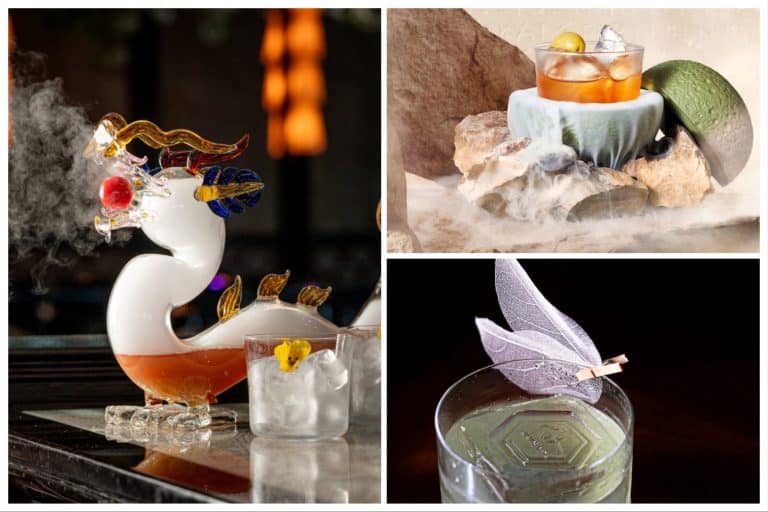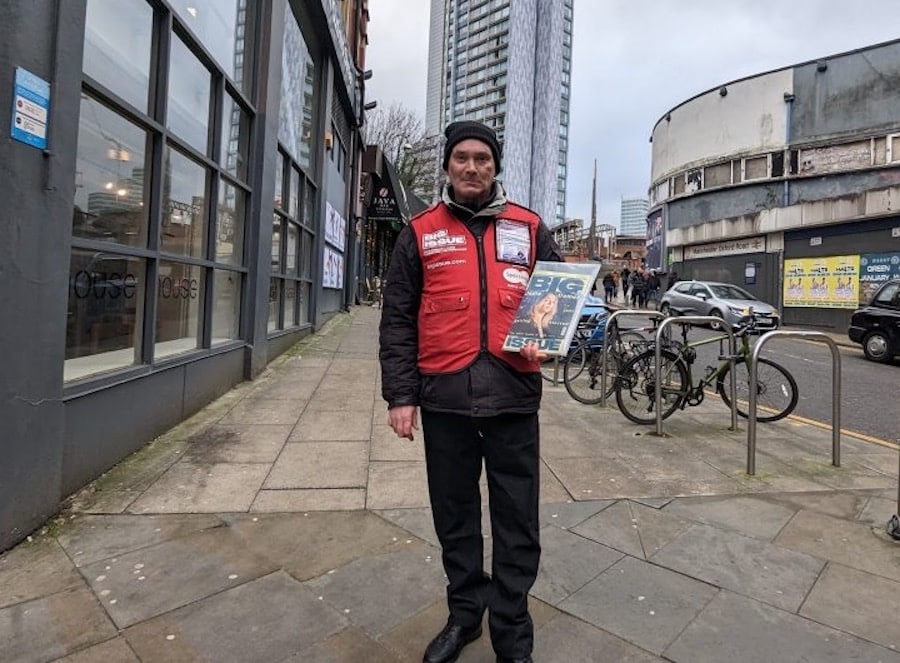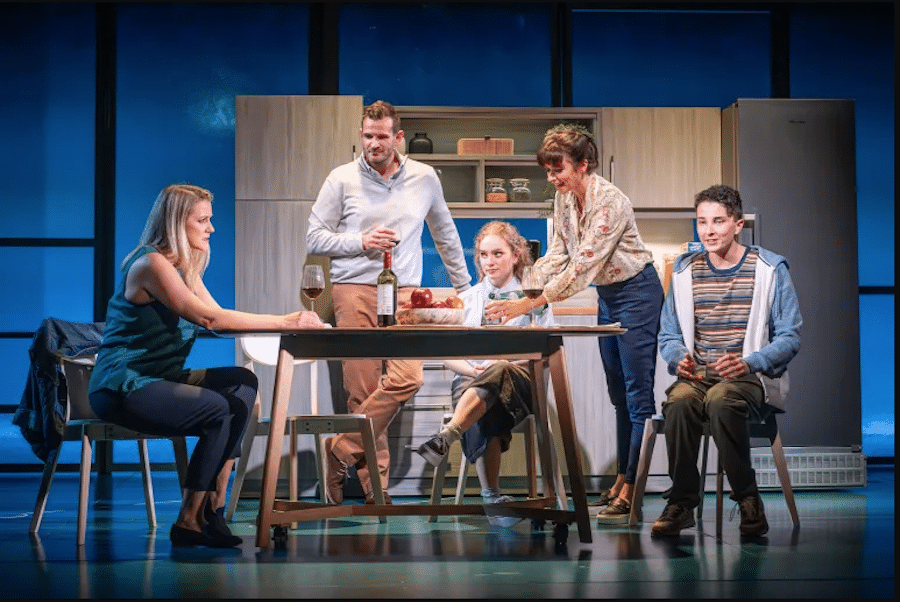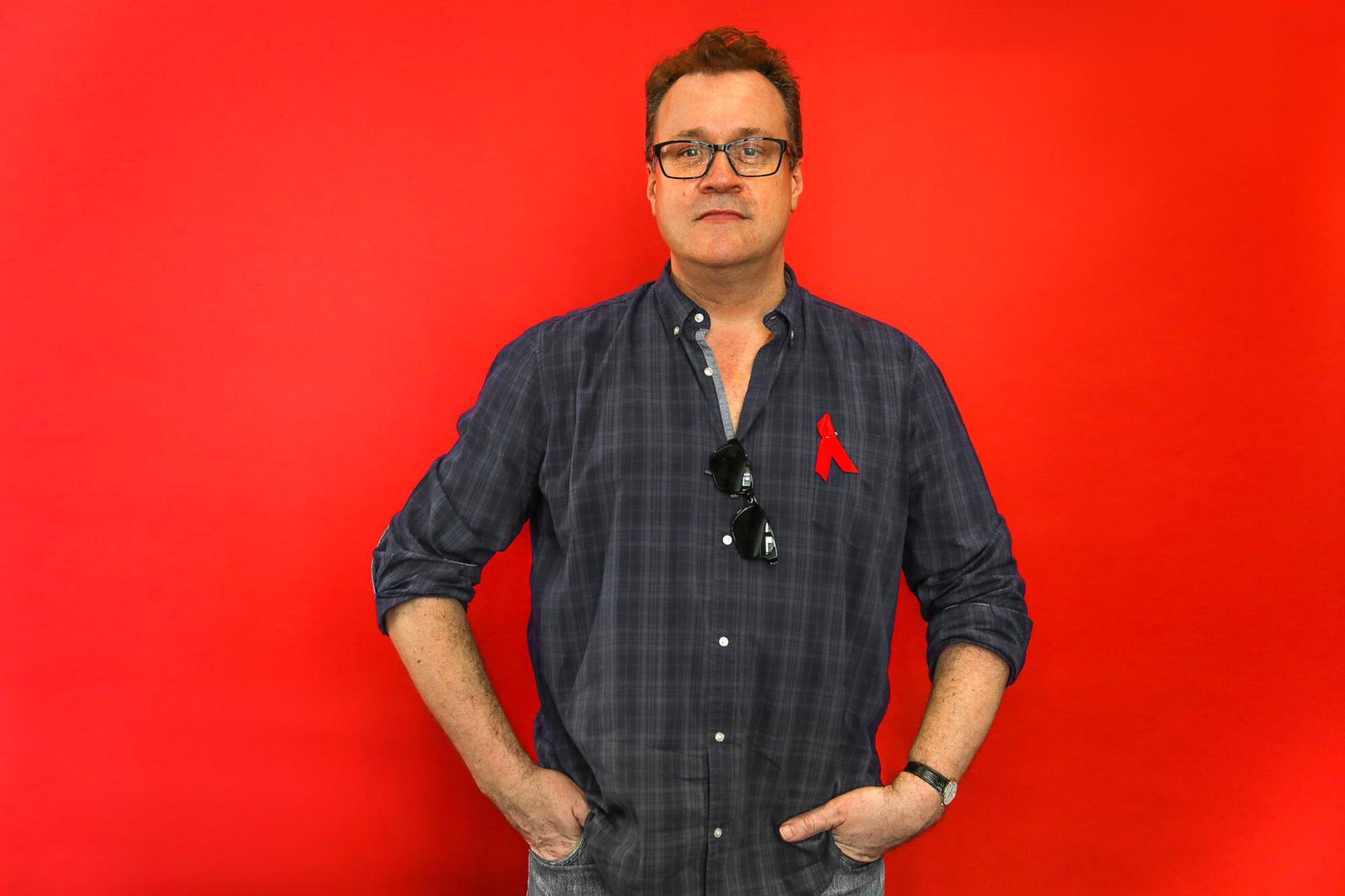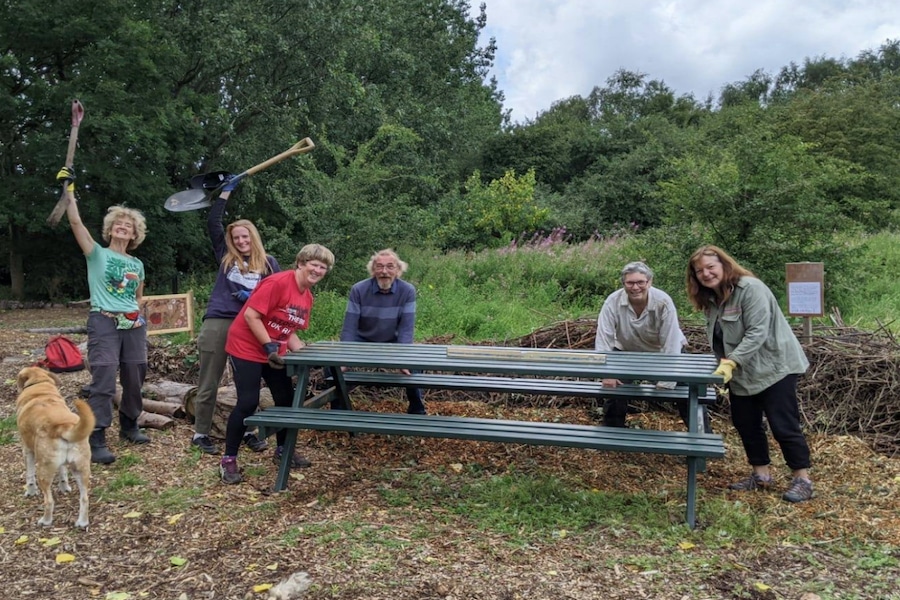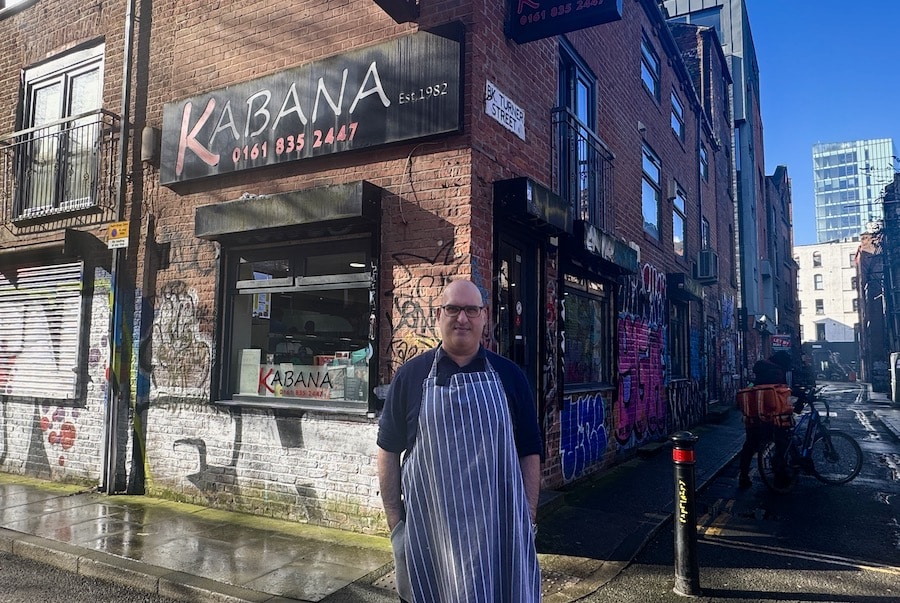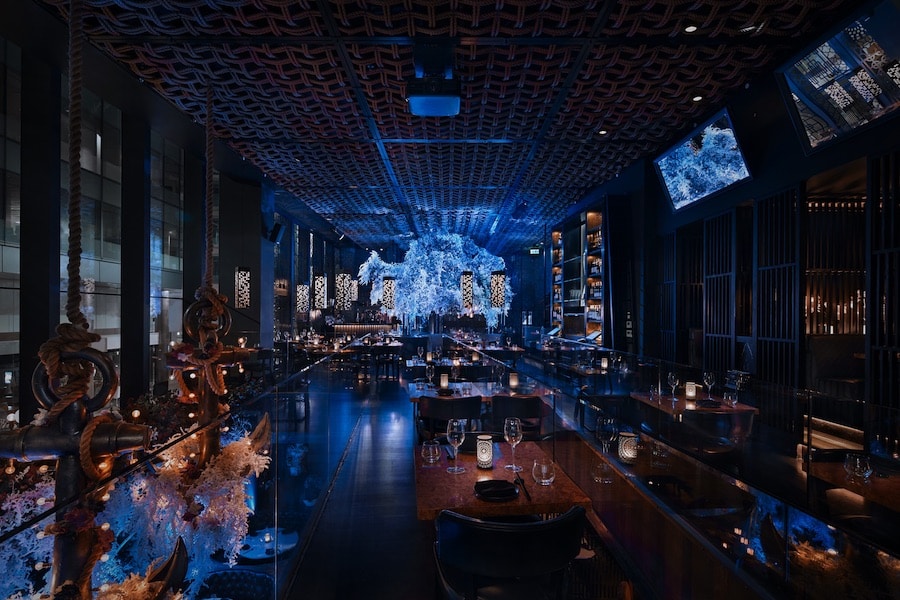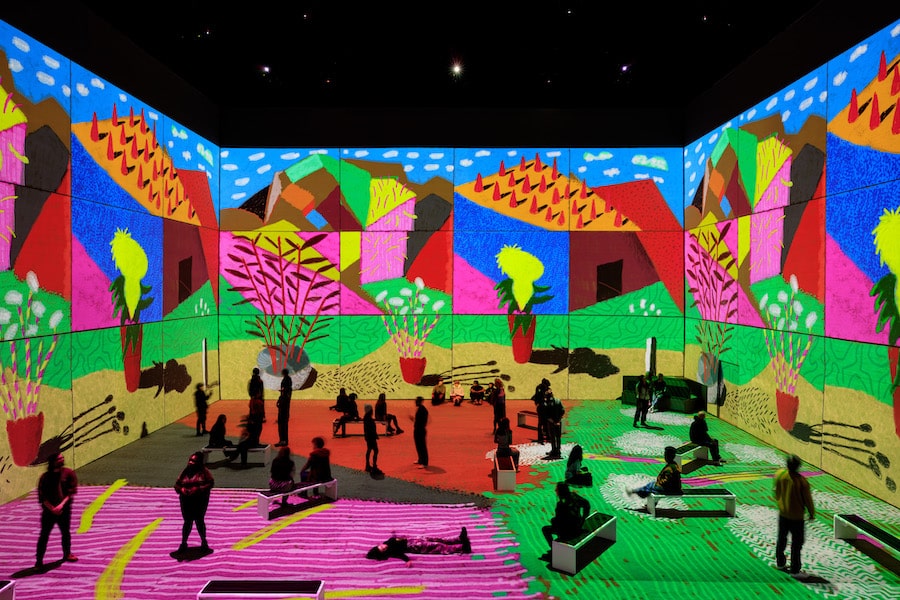Could this invention be the future of helping people manage their mental health?
- Written by Thom Bamford
- Last updated 4 months ago
- City of Manchester, Featured, Health & Wellbeing, People
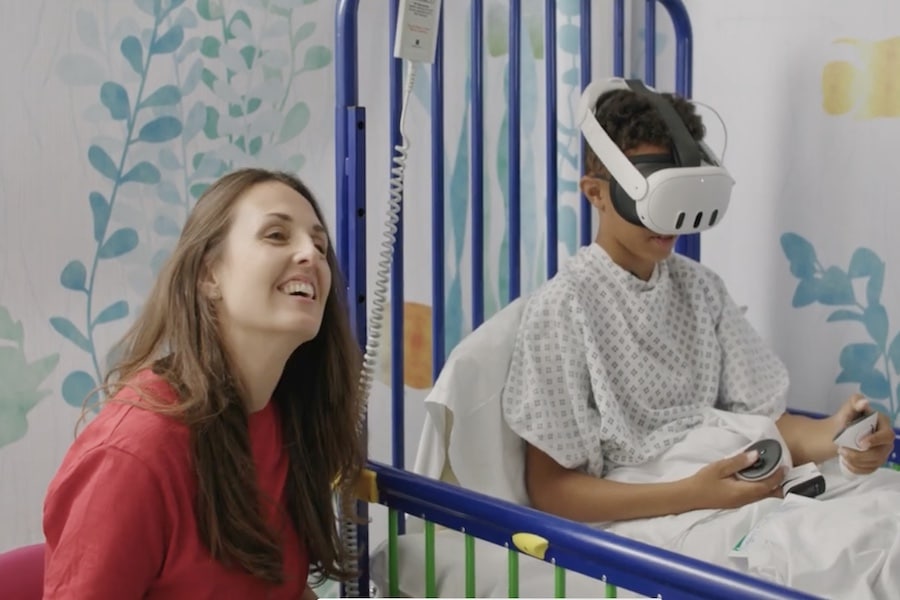
Sarah Wilkinson is no stranger to high-pressure environments.
From working at Manchester City Football Club to Manchester United Football Club, Royal Caribbean International Cruise Line and owning her own company, she has lived through the intensity that comes with jobs in high-stake industries.
Yet, it was not just her career that brought her face-to-face with the realities of pressure and stress—it was also her personal life.
A close friend’s battle with severe mental health issues played a pivotal role in shaping Sarah’s mission.
For more than 22 years, she watched her friend’s struggles with growing helplessness. Despite her friend’s intelligence and talent, life’s hardships led her to a breaking point, where even the 12-month NHS waiting list for care felt like a ticking clock on her survival.
The sense of powerlessness Sarah experienced stayed with her, fuelling a desire to create something that could provide mental health support to those in similar crises, but much sooner.
Out of this journey, Art VR was born—a therapeutic virtual reality experience aimed at offering an emotional escape, calming the mind, and easing stress for professionals in high-pressure or traumatic situations.
The project, now in its early stages, is set to work with Emergency Services, Care Homes, Cruise Lines and the Armed Forces to name a few, with the goal of providing respite and mental health support to workers in such sectors who often find themselves overwhelmed and on the edge of burnout.
The origins of Art VR
The origins of Art VR were both personal and whimsical.
Sarah, having moved to Norfolk to escape the overwhelming stress she felt in Manchester, found herself repeatedly drawn to the calming effect of the British seaside.
Her “happy place,” as she calls it, became a source of solace and renewal—an escape from insomnia, flashbacks, and the immense pressure she felt in her career.
It was during this time of reflection she felt a sense of magic and fantasy, her mind drifting back to happy memories captured, when she worked at Magic Kingdom at Walt Disney World in Florida, that something sparked an idea.
She was inspired by a scene from the Walt Disney film, Mary Poppins. Bert chalks a vivid street painting, and Poppins and the children jump into the artwork, entering a fantasy world. Sarah began to wonder: What if she could create a similar escape, not through chalk but through virtual reality?
What if people could step into their own happy place—a space carefully crafted to help them recharge mentally, emotionally, and even physically?
Thus, Art VR was conceived, and designed to be more than just a digital experience.
It would be a space where users could physically and emotionally decompress, a space modelled after Sarah’s own seaside sanctuary in Norfolk.
She recognised the therapeutic potential of such an immersive experience, particularly for people in professions where trauma, stress, and burnout are all too common.
Virtual emotional healing
The virtual experience starts with a visit to an art gallery.
Users select a painting—a British seaside scene, for instance—and are invited to engage with it through story-driven interaction. As the painting is completed, the virtual world comes to life.
The user is no longer looking at a static image but is fully immersed in a peaceful, interactive seaside environment.
This meticulously designed virtual world offers more than just aesthetic beauty; it is packed with activities that foster calm and reflection.
Users can go fishing, learning about different species as they catch them, or they can fly kites and catch bubbles filled with encouraging words like “Respect” and “You’re fabulous.”
For those wanting to connect with their inner child, the experience allows users to build sandcastles or even write personal messages in the sand.
All of these activities are designed to offer different levels of engagement, from purely passive enjoyment to hands-on, creative interaction.
The sandcastle-building activity, for example, has been thoughtfully designed so that users can interact whether they are standing or seated, making it accessible to people of all ages and physical abilities.
Sarah emphasises that the project’s focus is on creating a calm, familiar environment—the British seaside—rather than an exotic location like the Caribbean.
“A lot of people mentioned the seaside when I asked them about their happy place,” she said.
“It brings back memories of family holidays and simpler times. I wanted to create something that felt accessible, relatable and affordable.”
Will VR Therapy be a lifeline for frontline healthcare workers?
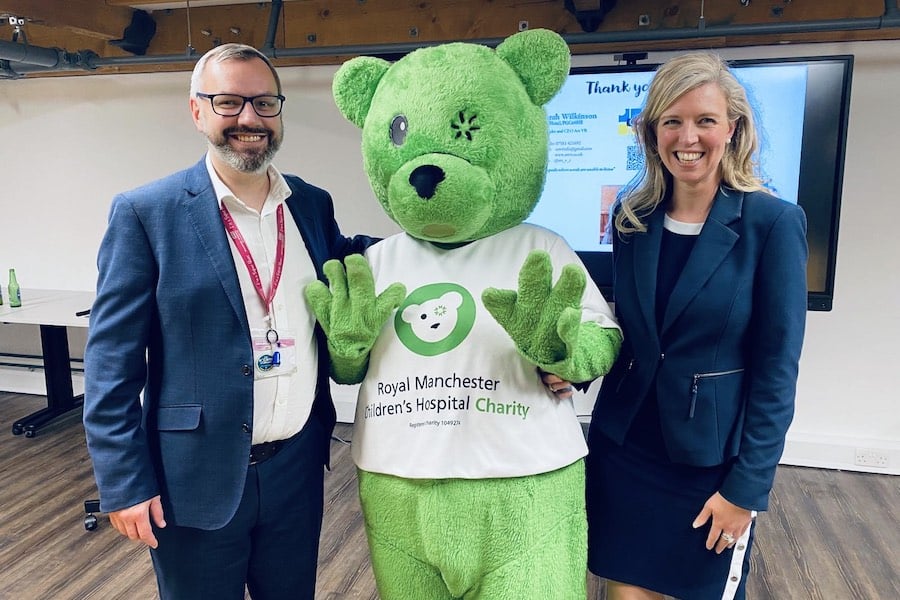
As much as Art VR is rooted in nostalgia and personal healing, its potential goes far beyond individual use.
In fact, the project’s current focus is on the healthcare sector, where stress, burnout, and mental fatigue are rampant.
Kimberley Cairns, Wellbeing Director, at mental health advocates Minds Matter, said: “In today’s fast-paced world, mental health challenges are becoming increasingly prevalent.
“Early intervention and prevention are crucial to addressing these issues before they escalate.
“Art VR harnesses the immersive power of virtual reality, combined with evidence-based psychological principles, to foster a unique sense of connection and belonging.
“By integrating elements such as environmental connection, gentle movement, personal reflection, and the promotion of psychological insight, Art VR creates a transformative experience where art and mental health converge.
“Art VR is dedicated to positively impacting quality of life and supporting early intervention.
“We ensure accessibility and inclusivity for everyone, regardless of age, background, diagnosis, or circumstance. By offering art without boundaries, our program intentionally removes barriers to promote well-being equity, enhancing psychological well-being and overall quality of life for all.”
Sarah’s relationship with the Manchester Foundation Trust and the Children’s Hospital is helping to bring Art VR to hospital staff, who are often asked to move from one emergency to another with little or no time to decompress.
The idea is simple: healthcare professionals can take a few minutes with the VR headset to step into this virtual seaside world, lowering their blood pressure, heart rate, and overall stress levels.
After even a brief session, participants reported feeling refreshed and more capable of handling their demanding roles. And the results are measurable.
During early testing, staff members’ vitals were taken before and after using the headset.
The results showed significant improvements, even after just a few minutes.
Heart rates dropped, blood pressure levels came down, and participants reported feeling less overwhelmed.
“The staff came out of the experience asking when we’d be back,” Sarah said.
“They were really excited about it, and some even suggested that this could be helpful for the families of patients who spend hours, sometimes days, in waiting rooms and by the patient’s bedside.”
Dr Graham Mason, Consultant Paediatric Critical Care, Royal Manchester Children’s Hospital recognises the huge potential of Art VR to support staff wellbeing and was delighted to welcome the team into the hospital.
“It is well recognised the huge burden and emotional and moral distress that paediatric critical care staff experience whilst caring for some of the sickest children in the northwest.
“The staff who tried out Art VR were hugely positive about the benefits they felt in terms of it supporting their well-being and mental health during busy and stressful shifts and continue to comment on the benefits of having regular access to this powerful and flexible well-being solution and space such as this.
“We are all incredibly excited for this to be integrated into our hospital.”
Beyond the Hospital: broadening the scope of Art VR
While the current focus is on the healthcare industry and high-stress environments, Sarah has grander plans for Art VR.
She envisions the technology becoming an integral part of corporate wellness programs, for those organisations that support employee well-being and corporate social responsibility; and within human resource departments to support employees during challenging transitions, such as redundancy processes.
The technology could provide a calming and supportive virtual environment, helping individuals cope with stress and anxiety associated with career changes.
The technology could also be incorporated into organisation’s first aid kits for mental health such as in the sporting world where athletes’ mental health is often overlooked.
Providing a virtual escape, could help athletes manage performance anxiety, recover from injuries, and maintain overall mental wellness.
One of the most innovative features of Art VR is its integration of an avatar-based conversation system. This feature allows users to talk to an avatar, offloading their thoughts and emotions in a private, non-judgmental environment.
For healthcare professionals, who may feel reluctant to burden their colleagues with their struggles, this system provides a much-needed outlet.
The conversations can be recorded and can be reviewed by a psychologist if follow-up care is needed, offering early intervention without the immediate need for face-to-face interaction.
“This feature is especially important for those who find it easier to talk to a computer rather than a person,” Sarah explained.
“It’s not meant to replace human interaction, but it gives people a chance to express their feelings in a way that feels safe and non-threatening.”
Funding the vision: the challenge ahead
The success of Art VR relies on more than just Sarah’s passion; it requires substantial funding to bring the vision to life.
To support this, Sarah has launched a fundraising campaign with a target of £48,000. These funds will go toward creating dedicated well-being rooms within hospitals, equipped with advanced VR headsets that can handle the natural language processing essential for Art VR’s avatar-based system.
Unlike typical gaming headsets, these specialized units come at a higher cost due to the sophisticated software, hardware, and operational demands required for effective use in high-stress settings.
If you’re interested in supporting this impactful project or sponsoring a unit for the Royal Manchester Children’s Hospital, please reach out to Sarah at [email protected].
You can also check out Art VR’s latest updates on Instagram and donate to the Art VR Therapy fundraiser here
As we conclude a month dedicated to World Mental Health Day, mental health remains an urgent issue, especially as identified in the Greater Manchester Financial Plan (March 21, 2024), which highlights a health system deficit of £298 million.
Within this, an £842 million budget has been earmarked for mental health, learning differences, dementia, and neurodivergent services.
“We’ve received such positive feedback from healthcare workers who have experienced Art VR,” Sarah shared.
“I truly believe this can make a difference not only in hospitals but across many high-stress environments.”
Early intervention in a mental health crisis
Art VR’s mission goes beyond simply providing moments of calm—it’s about establishing an accessible, proactive system for mental health support.
With 1 in 4 people experiencing mental health challenges each year, and 6 in 100 diagnosed weekly with generalized anxiety disorder in England (Mind), timely intervention is critical. Rather than requiring months-long waits for formal diagnosis, Art VR aims to address mental health needs before they escalate to crisis levels.
Looking ahead, Sarah envisions Art VR transforming mental health care, particularly in high-stress fields. As the 2024 Burnout Report from Mental Health UK reveals, 91% of UK adults have reported high or extreme stress levels over the past year, with more than 18 million workdays lost annually to stress, anxiety, and depression. Stress-related illnesses also burden the UK healthcare system, costing £8.13 billion in hospital admissions alone. In response, the government is investing £150 million in mental health crisis support through 2025, with a further £7.456 billion planned by 2029 (Gov.UK).
By creating an immersive space for individuals to relax and reset, Art VR holds the potential to help people manage mental health proactively, long before issues reach critical stages.
A passion project with a purpose
Sarah Wilkinson’s journey has been one of overcoming personal and professional challenges to create something truly innovative.
With Art VR, she’s not just offering a digital escape—she’s offering a lifeline.
By harnessing the power of virtual reality and the therapeutic effects of art, she is giving people in high-pressure roles the chance to take a deep breath, step back, and find peace amid the chaos.
In a world that often demands more than we can give, Art VR might just be the mental health intervention we’ve all been waiting for.
As the quote goes, “Art speaks where words are unable to listen”.
You can check out Art VR’s website by clicking here
- This article was last updated 4 months ago.
- It was first published on 25 October 2024 and is subject to be updated from time to time. Please refresh or return to see the latest version.
Did we miss something? Let us know: [email protected]
Want to be the first to receive all the latest news stories, what’s on and events from the heart of Manchester? Sign up here.
Manchester is a successful city, but many people suffer. I Love Manchester helps raise awareness and funds to help improve the lives and prospects of people across Greater Manchester – and we can’t do it without your help. So please support us with what you can so we can continue to spread the love. Thank you in advance!
An email you’ll love. Subscribe to our newsletter to get the latest news stories delivered direct to your inbox.
Got a story worth sharing?
What’s the story? We are all ears when it comes to positive news and inspiring stories. You can send story ideas to [email protected]
While we can’t guarantee to publish everything, we will always consider any enquiry or idea that promotes:
- Independent new openings
- Human interest
- Not-for-profit organisations
- Community Interest Companies (CiCs) and projects
- Charities and charitable initiatives
- Affordability and offers saving people over 20%
For anything else, don’t hesitate to get in touch with us about advertorials (from £350+VAT) and advertising opportunities: [email protected]

Big Issue, bigger heart: Manchester comes together for Colin
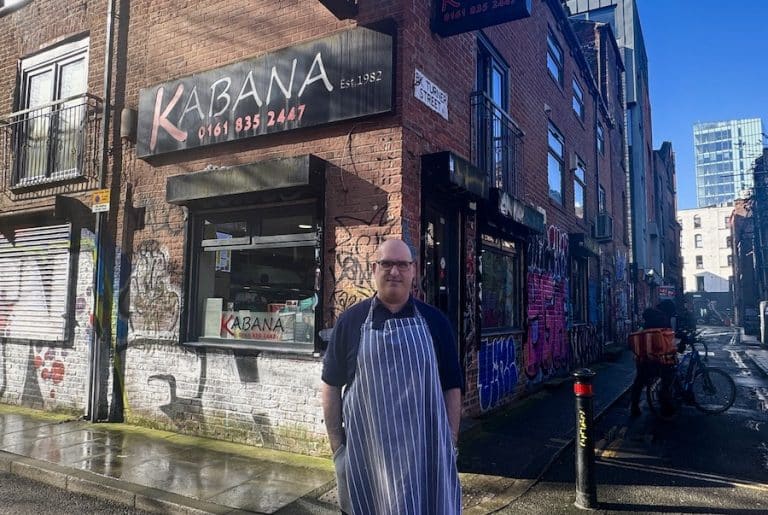
Why generations of Mancunians have loved Kabana for over 40 years
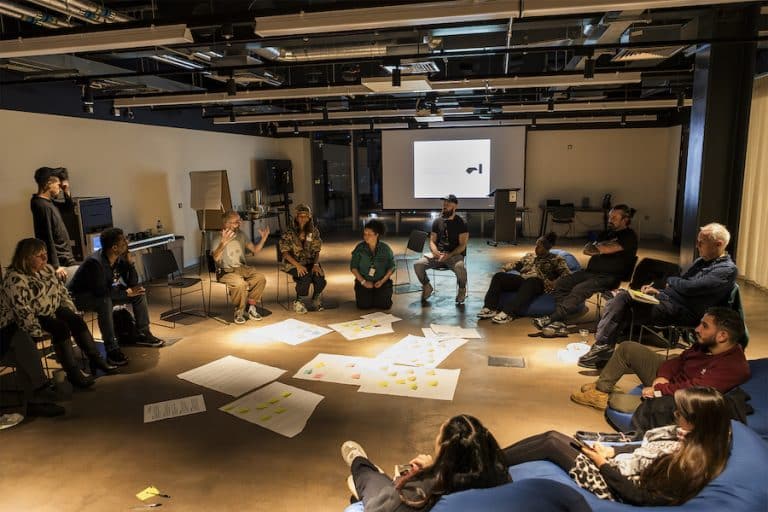
Art, tech and community collide in Manchester’s most interactive exhibit yet
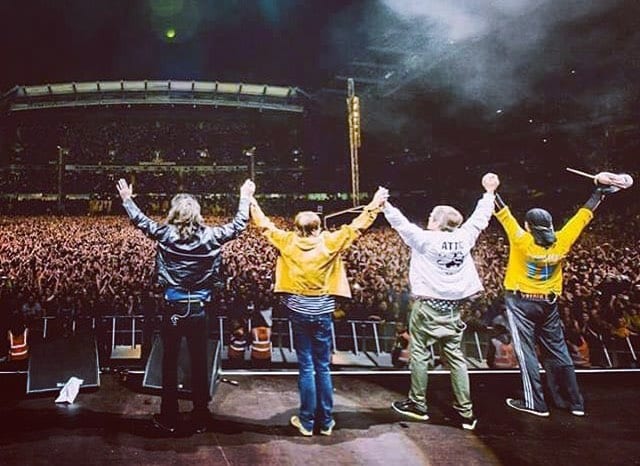
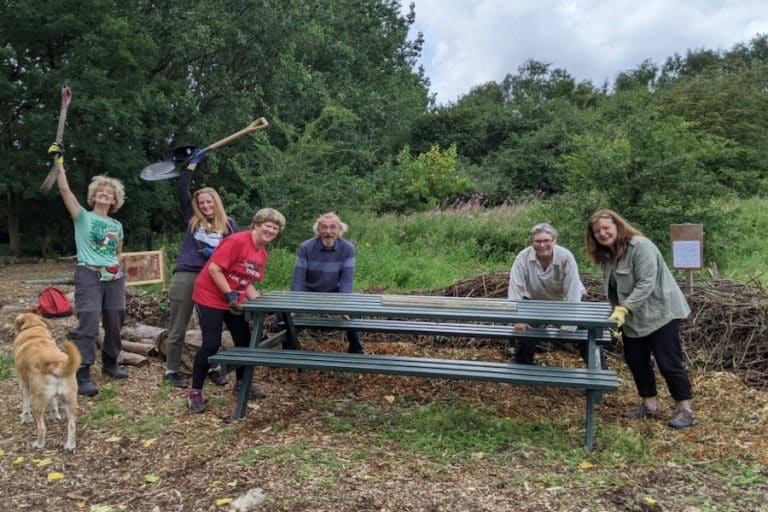
Meet the group reviving Manchester’s urban ecosystem through community action
